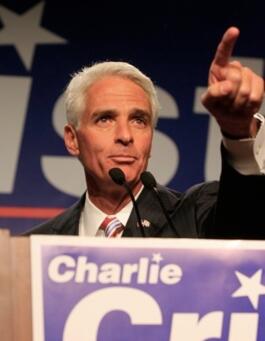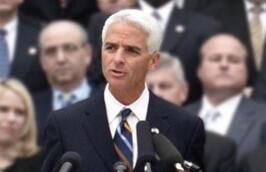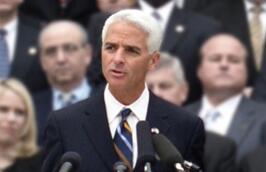Collusion, Anyone?
A Commentary By Michael Barone
As the likelihood that the Trump campaign colluded with Russia seems headed toward zero, the likelihood of proof of a different form of collusion seems headed upward toward certainty.
The Russia collusion charge had some initial credibility because of businessman Donald Trump's dealings in Russia and candidate Trump's off-putting praise of Vladimir Putin.
It was fueled by breathless media coverage of such trivial events as Jeff Sessions' conversation with the Russian ambassador at a Washington reception -- and, of course, by the appointment of former FBI Director Robert Mueller as special counsel. But Mueller's prosecutions of Trump campaign operatives were for misdeeds long before the campaign, and his indictment of 13 Russians specified that no American was a "knowing participant" in their work.
Now there's talk that Mueller is winding up his investigation. It seems unlikely that whatever he reports will fulfill the daydreams so many liberals have of making Trump go the way of Richard Nixon.
Meanwhile, the evidence builds of collusion by Obama administration law enforcement and intelligence personnel in trying to elect Hillary Clinton and defeat and delegitimize Trump in and after the 2016 election.
The investigation of Clinton's illegal email system was conducted with kid gloves. FBI Director James Comey accepted Attorney General Loretta Lynch's order to call it a "matter" rather than an "investigation." Clinton aides were allowed to keep her emails and destroy 30,000 of them, plus cellphones. They were not subject to grand jury subpoenas, and a potential co-defendant was allowed to claim attorney-client privilege.
On June 27, 2016, Lynch clandestinely met with Bill Clinton on his plane at the Phoenix airport -- a meeting that became known only thanks to an alert local TV reporter. Lynch supposedly left the decision on prosecution to Comey, who on July 5 announced publicly that Clinton had been "extremely careless" but lacked intent to violate the law, even though the statute punishes such violations whether they are intentional or not.
Contrast that with the collusion of Obama officials with the Clinton campaign-financed Christophe Steele/Fusion GPS dossier alleging Trump ties with Russians. Comey and the Justice Department used it, without divulging who paid for it, to get a FISA warrant to surveil former Trump campaign operative Carter Page's future and past communications -- the "wiretap" Trump was derided for mentioning.
Similarly, when Comey informed Trump in January 2017 of the contents of the then-unpublished Steele dossier, he didn't reveal that the Clinton campaign had paid for it. Asked on his iatrogenic book tour why not, he blandly said he didn't know. And maybe he doesn't actually realize he was employing J. Edgar Hoover-like tactics to keep his job. Maybe.
In any case, after he was fired, he immediately sent four of his internal memos, at least one of them classified, to a law professor friend to leak them to the press, with the intent of getting a special counsel appointed -- who turned out to be his longtime friend and ally Robert Mueller. Collusion, anyone?
Collusion can get complicated and sometimes fails to produce the intended results. Comey's deputy FBI director, Andrew McCabe, reportedly kept to himself for weeks the discovery that Clinton emails had been transmitted over the home computer of her aide Huma Abedin's then-husband, the disgraced ex-Rep. Anthony Weiner. After Comey learned of this, he made his Oct. 28 announcement that the Clinton email investigation was being reopened.
Comey and McCabe have produced contradictory accounts of events, and Comey's public praise of McCabe contrasts with his referral of McCabe to Justice's inspector general, who found him guilty of "lack of candor" -- a fireable offense for which he was indeed fired. Partners in collusion sometimes fall out.
Longtime Clinton friend Lanny Davis charges that Comey's statement was responsible for Clinton's defeat, and Comey, on his book tour, admitted that he may have made it only because he assumed Clinton would win.
Davis may be right, though no one can prove it. But one could also say that the Democratic Party lost the presidency because it nominated a candidate under investigation for committing a felony. And it seems as certain as these things can be that if Hillary Clinton had followed the law and regulations, there would be today no President Trump, no Attorney General Sessions, no EPA Administrator Scott Pruitt, no Justice Neil Gorsuch.
The blame ultimately belongs to Barack Obama, who knew of Clinton's private email system and who could have ordered her to follow the law. But that's one bit of collusion that didn't occur.
Michael Barone is a senior political analyst for the Washington Examiner, resident fellow at the American Enterprise Institute and longtime co-author of The Almanac of American Politics.
COPYRIGHT 2018 CREATORS.COM
See Other Political Commentary.
See Other Commentaries by Michael Barone.
Views expressed in this column are those of the author, not those of Rasmussen Reports.
Rasmussen Reports is a media company specializing in the collection, publication and distribution of public opinion information.
We conduct public opinion polls on a variety of topics to inform our audience on events in the news and other topics of interest. To ensure editorial control and independence, we pay for the polls ourselves and generate revenue through the sale of subscriptions, sponsorships, and advertising. Nightly polling on politics, business and lifestyle topics provides the content to update the Rasmussen Reports web site many times each day. If it's in the news, it's in our polls. Additionally, the data drives a daily update newsletter and various media outlets across the country.
Some information, including the Rasmussen Reports daily Presidential Tracking Poll and commentaries are available for free to the general public. Subscriptions are available for $4.95 a month or 34.95 a year that provide subscribers with exclusive access to more than 20 stories per week on upcoming elections, consumer confidence, and issues that affect us all. For those who are really into the numbers, Platinum Members can review demographic crosstabs and a full history of our data.
To learn more about our methodology, click here.



